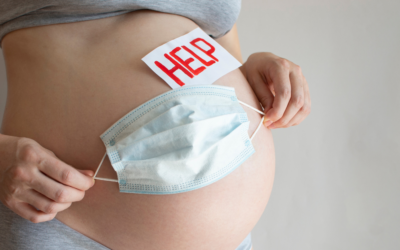COVID and Fertility

Adverse Effects Of COVID-19 Vaccination Observed In Women’s Reproductive Cycle
A peer reviewed study published in June revealed a relationship between women who’d received the COVID-19 vaccine and lowered rates of successful conception leading to live births. The study, published in the International Journal of Risk & Safety in Medicine, used data from the Czech Republic to examine any differences in rates of successful conception (ie: conception that led to live births) between women who had received the COVID-19 vaccine mRNA vaccine and those who had not. The results found that rates of successful conception were “substantially lower for women vaccinated against COVID-19 … than for those who were not vaccinated.” While this is still a preliminary study, the results should lead to further research on the extent to which women who received the COVID-19 vaccine were able to have successful conceptions — that lead to live births — compared to their unvaccinated counterparts. Data Silenced For Years After COVID-19 Vaccines Were Forced On Population A systematic review of literature published by the National Library of Medicine during the Biden administration’s control of the U.S. argued that there were no differences in pregnancy rates between vaccinated and unvaccinated women (and men). Unfortunately, this study was conducted during a time when a majority of research into the COVID-19 vaccine and its detrimental impacts to the human population were ignored or shut down by Big Medicine. (RELATED: China Continues Stealth Invasion Of US With More Biological Warfare) For example, researchers identified a link between COVID-19 vaccinations and post-COVID vaccine syndrome (PCVS) and long COVID in 2021, but their research was silenced until 2025. This appears to be a fairly common trend, as the NLM also recently published a study on the detrimental impact of the vaccine in rats. https://t.co/5HFCsoRify Detection of S1 spike protein in CD16+ monocytes up to 245 days in SARS-CoV-2-negative post-COVID-19 vaccine syndrome (PCVS) individuals Took us 4 years to get our post-COVID vaccine syndrome paper (PCVS) peer reviewed and published. We knew back in… — Dryostradamus MD MPH 🇺🇸 (@dryostradamus) May 13, 2025 A study on the impact of COVID-19 vaccines on the ovarian reserves of rats also found the drugs may cause significant detrimental impacts via “accelerated follicular loss and alterations in apoptotic pathways during folliculogenesis.” However, most studies into animals are not taken particularly seriously (even by us). Other studies have found a potential link between the SARS-CoV-2 Spike protein and spermatogenesis-related antigens, potentially leading to an impact on the infected patient’s fertility. The autoimmune response from the Spike protein — also identified in patients who received the mRNA vaccine — was found to potentially have human consequences as far as male fertility was concerned. (RELATED: Kennedy Removes COVID-19 Vaccine From Recommended Childhood, Pregnancy Schedule) A large-scale study conducted among 2,733 women undergoing in vitro fertilization-frozen embryo transfer (IVF-FET) conducted within the first year of the roll-out of the COVID-19 vaccines found that clinical pregnancy and live births were lower within vaccinated populations compared to unvaccinated women to a significant degree. “Inactivated COVID-19 vaccination may be associated with a modest reduction in IVF-FET success, particularly when administered before ovarian stimulation,” the researchers wrote in the conclusions, but added that “a vaccination administered more than 90 days prior to ovarian stimulation may help mitigate these potential adverse effects,” though more research is needed. Fertility In Decline A report from Unusual Whales detailed a United Nations study into 14,000 women across 14 countries — South Korea, Thailand, Italy, Hungary, Germany, Sweden, Brazil, Mexico, the U.S., India, Indonesia, Morocco, South Africa, and Nigeria — from high to low-income backgrounds, with high and low fertility rates, showed an “unprecedented decline” in fertility rates. Thirty-nine percent of those surveyed blamed money as the core reason for not having children, but many believe the real issues are health and society-related. (RELATED: EXCLUSIVE: 20,000,000 Sick Americans Abandoned By Medical ‘Oligarchy’ Controlled By Elites; Can We Fix It?) “We found that alarmingly high proportions of adults are unable to realize their fertility intentions,” the UNFPA noted in their study. The study also noted the need for greater education and support, such as the importance of having “supportive partners who will share the load of childbearing equitably.” “The real solution to the crisis of reproductive agency we are facing is to build a more equitable, sustainable and caring world that supports individuals to have the families they aspire to,” the report added, begging the question: why have we made it easier for women to kill their unborn children than to raise them successfully? TMM Analysis A lot of people read academic journals and are completely misled in the efficacy of the findings. When we deep-dive into published data here at TMM, we also like to look at the schools or institutions conducting the research, as well as the individual researchers themselves to assess any potential conflicts of interest — even when these studies claim there is no conflict, that is not a guarantee. The biggest takeaway from this report is that the Czech study clearly shows a need for detailed independent investigation into any potential links between fertility and the COVID-19 vaccine. We are only a few years out from the mass rollout of the COVID-19 vaccine, so much of the data related to its impact likely won’t reach any type of scale for potentially decades — more due to manipulation within Big Pharma / Big Medicine — than any legitimate reason. We also need to normalize rhetoric away from being pro-life and pro-choice. If given the choice, all women would want to raise their children in a world that they know is supportive, safe, and sustainable in the long-term, but we keep elected leaders — particularly in Europe and other Western nations — who focused on a socialist approach to governance, which ultimately makes it harder for the individual to thrive and survive. How about instead of asking people if they are pro-life, or pro-choice, we start asking if they’d prefer to kill their unborn children, or work toward a better world for…

